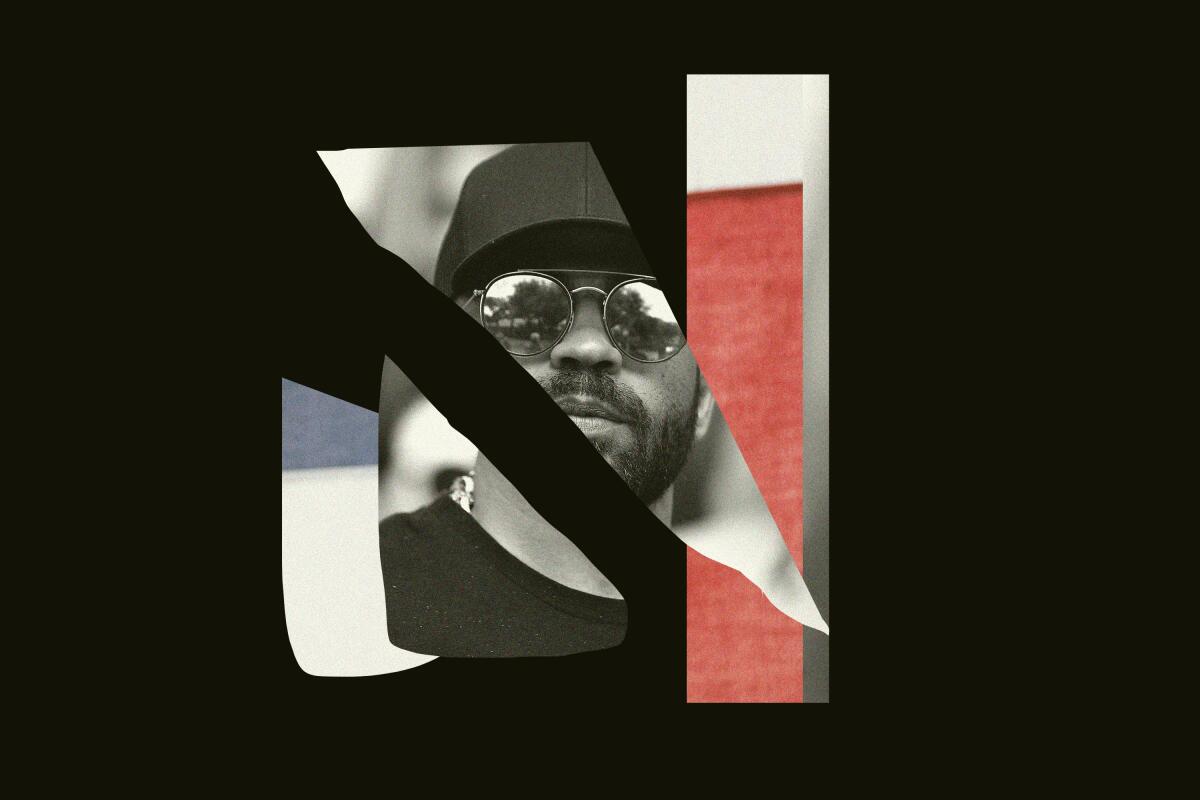Latinx Files: The Proud Boys’ Hispanic face

One of the most shocking moments from last Thursday’s inaugural congressional hearing on the Jan. 6 insurrection was the inclusion of never-before-seen footage of the Proud Boys leading the charge to the Capitol.
It highlighted, at least to me, how latinidad can serve as a shield for extremist views.
You can’t talk about the Proud Boys, an organization classified as a hate group by the Southern Poverty Law Center, without talking about their leader, Enrique Tarrio.
Tarrio is a Cuban American from Miami’s Flagami neighborhood who assumed leadership of the Proud Boys after founder Gavin McInness (who also co-founded VICE) stepped down. He’s used his heritage to dismiss accusations that the organization advocates for white supremacy.
The Latinx experience chronicled
Get the Latinx Files newsletter for stories that capture the multitudes within our communities.
You may occasionally receive promotional content from the Los Angeles Times.
“I’m pretty brown. I am Cuban. There’s nothing white supremacist about me,” Tarrio told Insider in September 2020.
Actions, of course, speak louder than words.
Tarrio and the Proud Boys were active participants in the 2017 Unite the Right rally in Charlottesville, Va. And though Tarrio himself wasn’t in Washington on Jan. 6, 2021, new evidence suggests that he may have had a role in what transpired that day.
On Wednesday, federal prosecutors revealed that Tarrio had received a memo outlining plans to take over congressional buildings. A week prior to the first Jan. 6 hearing, he and five other Proud Boys were indicted for seditious conspiracy.
Even more troubling is that the Proud Boys have successfully bled into the political mainstream. Earlier this month, the New York Times reported that the organization had infiltrated the Republican Party of Miami-Dade County. That revelation was concerning enough that the Miami Herald’s editorial board all but begged Southern Florida Republicans to denounce the Proud Boys.
And as we enter the fall highlighted by midterm elections, the extremist rhetoric will surely be a constant on our social feeds and our family dinner tables.
“He’s a lot like many a Cuban-American cousin or high school friend,” noted Joshua Ceballos in a Miami New Times profile. “In that respect, one could easily mistake him for any other Miamian raised on the conservative rhetoric of el exilio.”
It’s too convenient to discount Tarrio as an isolated incident. But doing so is both wrong and dangerous. After all, he’s one of us.
Consider subscribing to the Los Angeles Times
Your support helps us deliver the news that matters most. Become a subscriber.
DACA, 10 years later
On Wednesday, the Deferred Action for Childhood Arrivals (DACA) program turned 10. DACA has been life-changing for the hundreds of thousands undocumented Americans enrolled in it. Because of it, many have been given a viable path to achieving their American Dream.
“DACA is indisputably the most successful policy of immigration integration of the last several decades,” Roberto Gonzales, a professor of sociology at the University of Pennsylvania, told The Times.
But like its recipients, DACA remains in limbo. The program was launched by the Obama administration as an executive stop-gap solution intended to buy Congress time to pass legislation that would provide recipients a path to citizenship.
Ten years later, we are no closer to meaningful immigration reform. Not only that, the program has been challenged in federal court and is likely headed to an unfriendly Supreme Court that could potentially undo all the good DACA has brought.
Of course, it doesn’t have to be this way. As my colleague Jean Guerrero points out in her latest column, President Biden can step in and do more.
Whether he’ll do it is another question entirely.
For more on DACA’s 10th year anniversary:
No deportation protection. No work permit. On DACA’s 10th anniversary, thousands left behind
Jean Guerrero: If Congress won’t help the ‘Dreamers,’ Biden should
On the 10th anniversary of DACA, Janet Napolitano reflects on program she helped create
Congratulations Nancy Rivera Brooks!
This June marks 40 years since Nancy Rivera Brooks joined the Los Angeles Times. Felicidades!
Now an assistant editor on the Business desk, Rivera Brooks was part of the team behind “Latinos in Southern California,” the seminal 1983 series that won The Times the 1983 Pulitzer Prize for Public Service, which is considered one of the highest honors in journalism.
Straight up, this newsletter would not exist without the foundational work that she and that team did. Do yourself a favor and read the Latino series if you haven’t yet.
The best thing on the Latinternet this week: “For all the taqueros, anything is possible.”
On Monday, the winners of the 2022 James Beard Foundation Awards, considered to be the Oscars of the food world, were announced. It was a big night for Latinx recipients —among them was the homie José Ralat, who was recognized for his work as Texas Monthly’s taco editor.
The highlight of the night for me was the speech that Edgar Rico of Austin’s Nixta Taqueria gave after being named Emerging Chef. To me, his ode to taqueros and immigrant parents perfectly embodied the “imaginémonos cosas chingonas” mindset.
The Latinx experience chronicled
Get the Latinx Files newsletter for stories that capture the multitudes within our communities.
You may occasionally receive promotional content from the Los Angeles Times.




